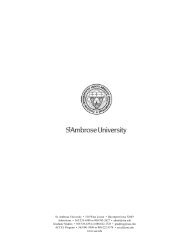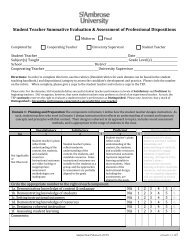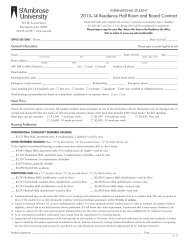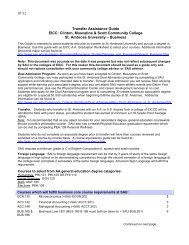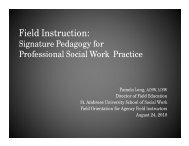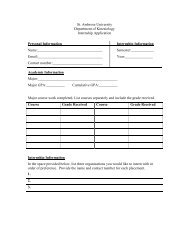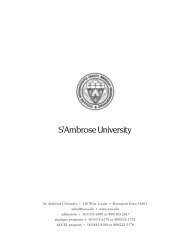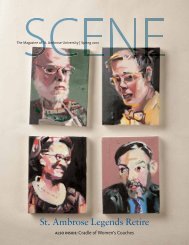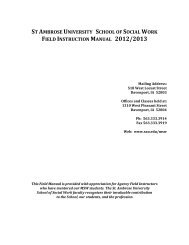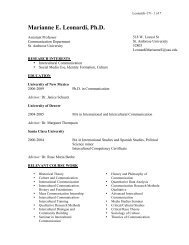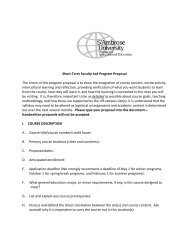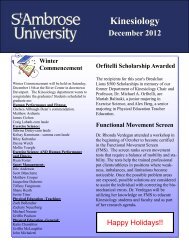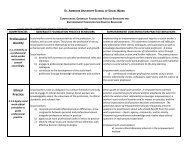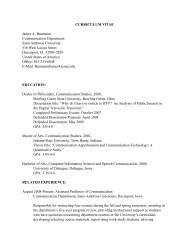student disability services faculty handbook - St. Ambrose University
student disability services faculty handbook - St. Ambrose University
student disability services faculty handbook - St. Ambrose University
You also want an ePaper? Increase the reach of your titles
YUMPU automatically turns print PDFs into web optimized ePapers that Google loves.
WORKING WITH STUDENTS WITH HEARING IMPAIRMENTS<br />
VERBAL COMMUNICATION<br />
The <strong>student</strong> should be given preferential seating directly in front of the instructor. The speaker should<br />
concentrate on speaking slightly slower and louder; however, shouting distorts the voice and makes<br />
comprehension more difficult.<br />
Face the class as much as possible and enunciate clearly.<br />
Repeat key points once or twice. Rephrasing a statement may also be helpful.<br />
Repeat and rephrase questions and comments made by other <strong>student</strong>s in the room.<br />
Asking <strong>student</strong>s to stand and pause slightly before speaking enables the person with a hearing<br />
impediment to quickly locate the speaker and facilitates speech reading.<br />
Never say “never mind” or “it’s not important”. The message conveyed to the person with a hearing<br />
<strong>disability</strong> is that he/she is not important.<br />
CLASSROOM ENVIRONMENT<br />
The classroom should have good lighting and minimal background noise.<br />
Close classroom door to minimize hallway noise.<br />
Using overheads with the lights turned off puts the hearing-impaired at a disadvantage since he/she<br />
depends a great deal on seeing the speaker.<br />
It is unrealistic to expect those with a hearing loss to get much information from audiotapes, movies<br />
or videos unless they are captioned or supplemented with written information. Request a captioned<br />
copy when ordering videos from the library or seller. Further help in this area is available through<br />
<strong>St</strong>udent Disability Services.<br />
WRITTEN AIDS<br />
Having notes provided in advance would be optimal, but having a note taker is also strongly recommended<br />
to catch any additional notes. Advance copies of notes or lecture outlines allows the <strong>student</strong> to review<br />
what is to be said beforehand so that he or she is not always “catching up” on what the topic is.<br />
Whenever possible, supply a list of vocabulary words or terms to the <strong>student</strong> in advance. This<br />
eliminates confusion when acquiring new concepts and vocabulary.<br />
Many <strong>student</strong>s with hearing disabilities need to receive assignments in written form in order to<br />
ensure proper understanding of the requirements.<br />
ASSISTIVE LISTENING DEVICES (ALDS)<br />
Some <strong>student</strong>s may request the use of an FM amplification system. Simply clip a small microphone as close<br />
to the throat as possible and attach the device to a belt or pocket. This system amplifies the speaker’s voice<br />
only, thus helping to filter out background noises.<br />
2011-2012 <strong>St</strong>udent Disability Services Faculty Handbook<br />
18



